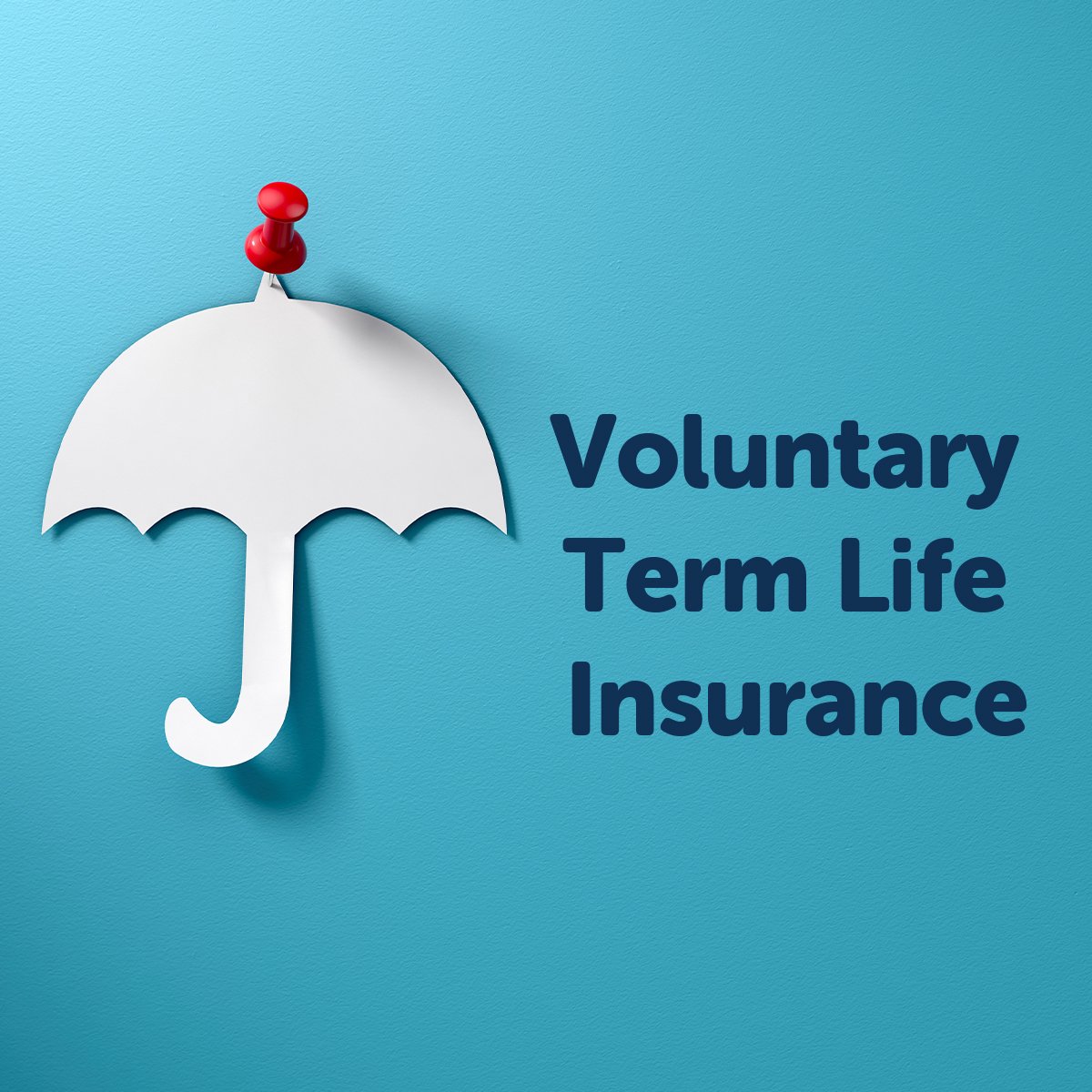What is voluntary life insurance – Voluntary life insurance offers a valuable safety net, providing financial protection for loved ones and peace of mind in the face of life’s uncertainties. Unlike mandatory group life insurance, voluntary life insurance is an optional benefit that employees can choose to purchase, tailoring the coverage to their specific needs and budget.
This comprehensive guide delves into the intricacies of voluntary life insurance, exploring its features, advantages, and potential drawbacks. We’ll also cover eligibility requirements, enrollment processes, and tips for choosing the right plan to ensure you have the coverage you need to safeguard your financial future.
Definition of Voluntary Life Insurance: What Is Voluntary Life Insurance
Voluntary life insurance is a type of life insurance that is not required by law or an employer. It is purchased voluntarily by individuals to provide financial protection for their loved ones in the event of their death.
Voluntary life insurance policies can be purchased through insurance companies, brokers, or agents. They are typically term life insurance policies, which provide coverage for a specific period of time, such as 10, 20, or 30 years. The amount of coverage and the premium payments will vary depending on the policyholder’s age, health, and other factors.
Benefits of Voluntary Life Insurance
There are many benefits to purchasing voluntary life insurance, including:
- Financial protection for your loved ones: If you die, your voluntary life insurance policy will provide a death benefit to your beneficiaries, which can be used to cover funeral expenses, outstanding debts, or other financial obligations.
- Peace of mind: Knowing that your loved ones will be financially protected in the event of your death can give you peace of mind.
- Affordable: Voluntary life insurance is relatively affordable, especially if you are young and healthy.
Features of Voluntary Life Insurance
Voluntary life insurance offers several key features that make it a flexible and customizable option for individuals seeking financial protection. These features include coverage amounts, premiums, and beneficiary designations, allowing policyholders to tailor their coverage to meet their specific needs and circumstances.
Voluntary life insurance offers individuals the flexibility to supplement their basic life insurance coverage, ensuring financial protection for loved ones. It is a personal choice that can provide peace of mind, similar to the way Brandon’s captivating performances in Brandon Dances with the Stars: A Journey of Talent and Charisma bring joy and inspiration to audiences.
Voluntary life insurance empowers individuals to customize their coverage based on their specific needs, providing financial stability and security for their families.
Coverage Amounts
Voluntary life insurance policies provide coverage amounts that vary depending on the policyholder’s needs and financial situation. Coverage amounts can range from a few thousand dollars to several million dollars, ensuring that individuals can obtain the appropriate level of protection for their loved ones in the event of their untimely demise.
Premiums
Premiums for voluntary life insurance policies are typically based on factors such as the coverage amount, the policyholder’s age, health, and lifestyle habits. By offering a range of coverage options and premium rates, voluntary life insurance allows individuals to choose a policy that fits their budget and provides the desired level of financial protection.
Beneficiaries
Voluntary life insurance policies allow policyholders to designate beneficiaries who will receive the death benefit in the event of their passing. Beneficiaries can be individuals, such as spouses, children, or parents, or organizations, such as charities or trusts. Policyholders have the flexibility to change their beneficiaries at any time, ensuring that their death benefit is distributed according to their wishes.
Advantages of Voluntary Life Insurance
Voluntary life insurance offers several advantages, making it a valuable financial tool for individuals and families.
Voluntary life insurance provides coverage beyond what is offered by an employer or government program. It allows individuals to tailor their coverage to their specific needs and circumstances. By exploring top-rated life insurance policies , individuals can compare options and select a plan that aligns with their financial goals and risk tolerance.
Voluntary life insurance empowers individuals to protect their loved ones and secure their financial future.
One significant advantage is the financial protection it provides for loved ones in the event of the policyholder’s untimely demise. Voluntary life insurance can provide a lump sum payment to beneficiaries, which can help cover expenses such as funeral costs, outstanding debts, and mortgage payments, ensuring financial stability during a difficult time.
Tax Benefits
Voluntary life insurance policies often come with tax advantages. Premiums paid towards the policy may be tax-deductible, reducing the overall cost of coverage. Additionally, the death benefit received by beneficiaries is generally tax-free, providing a significant financial advantage.
Peace of Mind
Voluntary life insurance offers peace of mind knowing that loved ones will be financially secure in the event of an unexpected tragedy. It eliminates the burden of financial worries and provides a sense of security and well-being.
Voluntary life insurance offers financial protection to loved ones in the event of an insured individual’s death. Unlike government-sponsored programs, it is not mandatory but provides flexibility and customization options. For instance, Dancing with the Stars 2024: A Comprehensive Guide to Voting Procedures and Contestant Analysis highlights the importance of understanding voting procedures and contestant analysis to ensure informed choices.
Similarly, voluntary life insurance empowers individuals to tailor coverage based on their unique needs and financial goals.
Examples
For example, a family with a single income earner may benefit from voluntary life insurance to ensure that their financial obligations can be met in case of the breadwinner’s untimely death. Similarly, individuals with significant debts or financial responsibilities may find voluntary life insurance valuable in protecting their loved ones from financial hardship.
Disadvantages of Voluntary Life Insurance
Voluntary life insurance, while providing valuable coverage, also comes with potential disadvantages that should be considered before enrolling.
One significant disadvantage is the cost associated with voluntary life insurance. Premiums are typically paid through payroll deductions, and the cost can vary depending on the amount of coverage, age, and health of the insured individual. These premiums can add up over time and may not be feasible for all individuals, especially those on a tight budget.
Coverage Limitations
Voluntary life insurance policies often have coverage limitations, which means the amount of coverage may not be sufficient to meet the needs of all individuals. The coverage limits vary between providers and plans, and it’s essential to carefully review the policy details to ensure adequate coverage. For individuals with substantial financial obligations or dependents, the coverage limits of voluntary life insurance may not be enough.
Underwriting Requirements
Voluntary life insurance policies typically require underwriting, which involves a medical examination and review of the applicant’s health history. Based on the underwriting results, the insurance company may deny coverage, offer coverage with a higher premium, or exclude certain pre-existing conditions. This process can be time-consuming and may result in individuals being ineligible for coverage or facing higher costs.
Eligibility and Enrollment for Voluntary Life Insurance
Voluntary life insurance is available to most working individuals, regardless of age or health status. However, there may be some eligibility requirements set by the employer or insurance company.
To enroll in a voluntary life insurance policy, you typically need to complete an application form and provide basic information such as your name, address, date of birth, and health history. The insurance company will review your application and determine your eligibility and premium rate.
Types of Voluntary Life Insurance Plans
There are several types of voluntary life insurance plans available, including:
- Term life insurance provides coverage for a specific period of time, such as 10, 20, or 30 years. If you die during the coverage period, your beneficiaries will receive the death benefit.
- Whole life insurance provides coverage for your entire life, as long as you continue to pay the premiums. Whole life insurance policies also accumulate a cash value that can be borrowed against or withdrawn.
- Universal life insurance is a type of whole life insurance that offers more flexibility than traditional whole life policies. Universal life insurance policies allow you to adjust your coverage amount and premium payments over time.
Choosing the Best Voluntary Life Insurance Plan, What is voluntary life insurance
When choosing a voluntary life insurance plan, you should consider your age, health, financial needs, and family situation. You should also compare the premiums and benefits of different plans before making a decision.
Last Recap
Voluntary life insurance empowers individuals to take control of their financial well-being, providing a valuable supplement to existing coverage. By understanding the ins and outs of this optional benefit, you can make informed decisions that protect your loved ones and secure your financial legacy.






